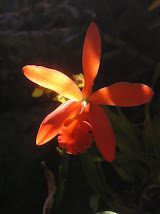 Fiji Water is a brand of bottled water which is bottled in the Fiji Islands. The water comes from an artesian aquifer in the Yaqara Valley of Viti Levu.
Fiji Water is a brand of bottled water which is bottled in the Fiji Islands. The water comes from an artesian aquifer in the Yaqara Valley of Viti Levu.The company was formed in 1996 by David Gilmour, one-time partner in Clairtone Sound Corporation Limited, and the first bottles were shipped to the United States in late 1997. Fiji Water later became available ( and fashionable) at more retail locations throughout North America, the United Kingdom, France, Spain, Australia, much of the Caribbean, Mexico, as well as Germany. They are considered "trendy" and several Holliwood starts had declared drinking it.
The company claims that in the case of Fiji Water, location is key, and because of the islands' remote displacement from other continents, it is protected by its isolation from pollutants and other negative artificial contaminants.
But, on the other side...
Fiji Water has been criticized for the environmental costs embedded in each bottle. The production plant runs on diesel fuel 24 hours a day. The high-grade plastic used to make the bottles is transported from China to Fiji, and then (full of water) to the United States and other countries. A 1 liter bottle of Fiji Water contaminates 6.74 liters of water to stretch-blow mold the plastic, burns fossil fuel to transport plastics from China and full bottles to the country of sale, and produces 0.25 kg of greenhouse emissions, based on the U.S. as the country of sale. Recently, the company has taken efforts to curtail its carbon footprint in the hopes of becoming carbon negative through reduced product emissions, increased usage of renewable energy, and the offsetting of remaining emissions by 120%, starting in 2008. In addition, the company plans to reduce the size of its packaging by at least 20% for 2010, as well as explore opportunities to spur on recycling.






























No comments:
Post a Comment